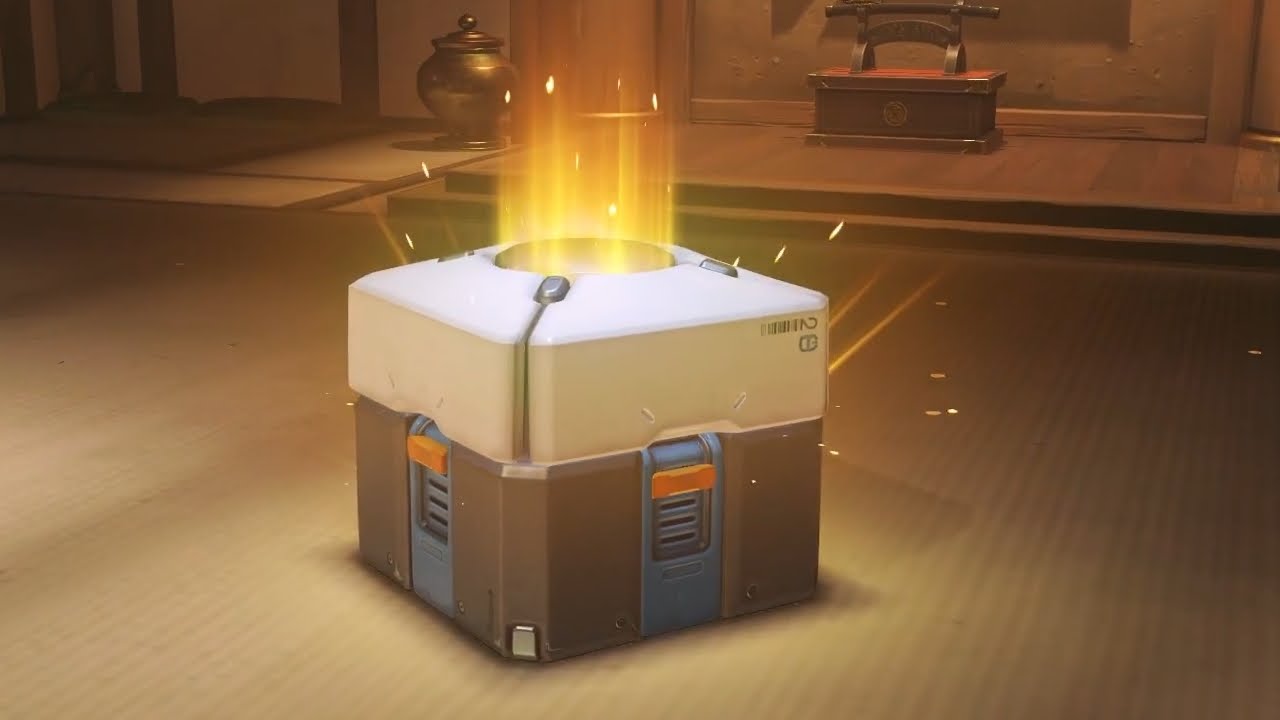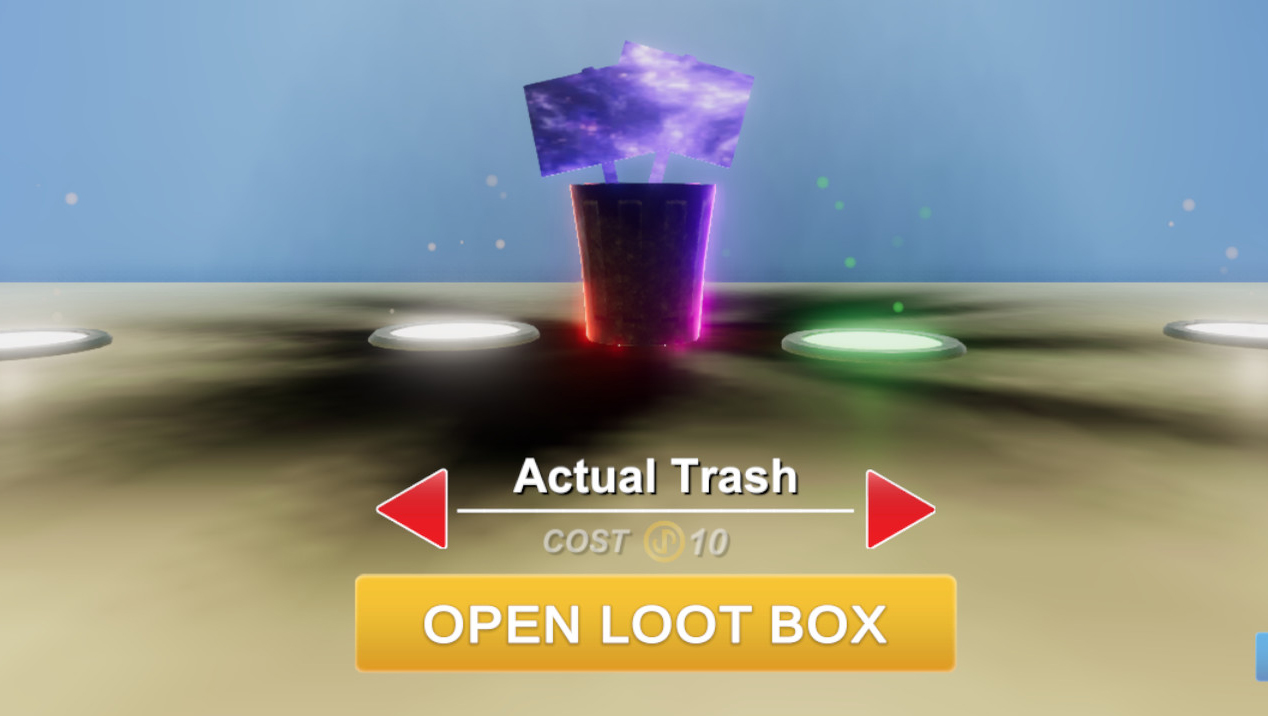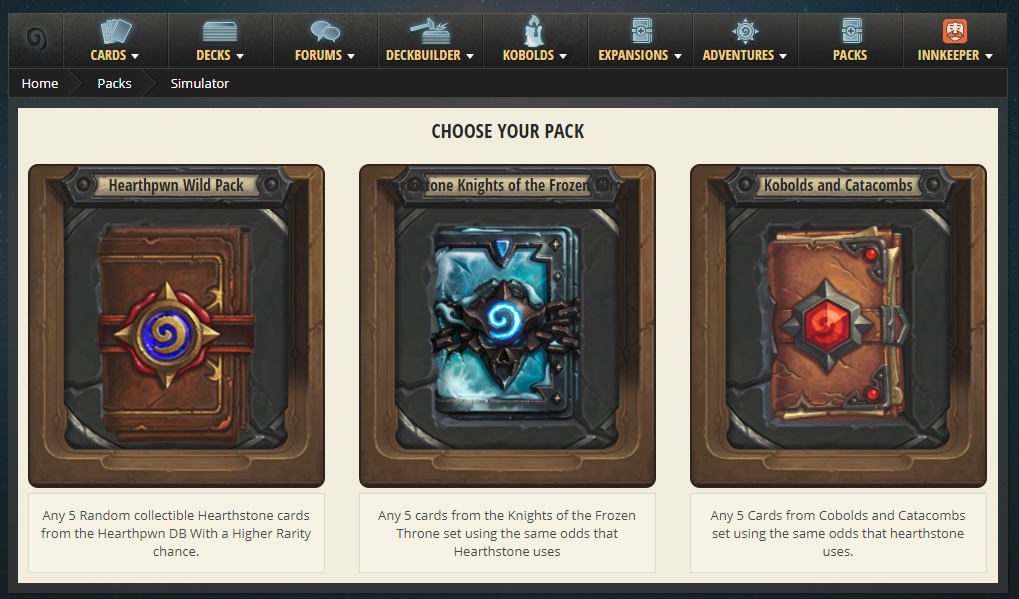The strange satisfaction of loot box simulators
You don't get to keep anything, but it's still fun to crack open those crates.

There is a delicate, confounding poetry to Lootjunkie.xyz. You are presented with a simple jpeg of one of those titanium, pressure-sealed Overwatch lootboxes. You press the open button. You hear the jingle. You page through the spoils; the sprays, the skins, the disappointing voice lines. Sometimes you get a legendary, and it gives you a twinge of the same euphoria you're filled with when you open one on your official account, even though you don't really get the skin. That you can sit there, on your browser, and unwrap payloads of counterfeit items sourced from the database of a videogame is both awesome and dystopian.
You are, of course, not adding anything to your bank account or your mantelpiece when you acquire Mercy's witch skin—a purely digital piece of capital, arbitrarily unlocked on an inhospitable Blizzard server bay somewhere in the country. But at this point, Overwatch is a game about staring at pretty models in the dressing room, just as much as it's about shooting your friends.
Lootjunkie's infrastructure is surprisingly complex. The creator of the site is an Overwatch fan named Matt, and while his math might not be perfect, he does do a pretty solid job of balancing the loot tables to be as realistic as possible. (Originally he was crafting them by hand, but now he pulls in information from APIs.) He built Lootjunkie as a personal project to see how long it'd take him to open a few rarities he had his eye on without dipping into his personal finances. "While I wouldn't consider myself an addict of lootboxes I've certainly spent my fair share of money on them for sure," he says, over email.
I think LootJunkie can scratch that itch for a lot of people.
Matt, creator of Lootjunkie
The site brings in about 80 unique visitors a day, each of whom feast on an infinite supply of fake Overwatch lootboxes, like a surrogate injection to keep them away from the $1.99 real fix. If you're particularly thirsty, you can adjust the algorithm to include specific holiday events so you finally have the chance to unwrap Mei's Santa suit in July. Matt has never heard from anyone who's used his invention as a cheap and painless proxy, but it certainly wouldn't surprise him. "I think LootJunkie can scratch that itch for a lot of people," he says. "I've often been excited for opening a legendary on LootJunkie which I always thought was funny."
Much has been made about the positives and negatives of post-release monetization. You've heard all the talking points: the pay-to-win mentality, the apt gambling comparisons, the frustrations when some 14-year-old across the void is lording over you with a much cooler looking arsenal than you'll ever have the time to acquire. However, I think one thing that's been left out of that conversation is how deeply we all enjoy cracking open our crates, and filling our coffers with all sorts of new stuff. Dumb stuff! Functionally useless stuff! But stuff none the less.
Never is that more apparent when you consider the sheer number of lootbox simulators on the internet. The extremely robust Convars.com lets you spin the Counter-Strike slot machine as many times as you want. Hearthpwn, one of the most popular Hearthstone fan-sites on the internet, has a built in dashboard that lets you tear into dummy booster packs. (They even have a variant for "Wild" packs, which don't even exist in the game itself.) Hell, LootJunkie isn't even the only Overwatch box opener on the market.

Maybe it's a little over-ambitious to call these contraptions a "game" but they certainly replicate a pretty significant draw a lot of us have to modern multiplayer experiences. I mean, right now would you rather play a 15-minute round of Overwatch, or spend 15 minutes cracking Overwatch boxes? It's both sad and discouraging that a question like that can summon a genuine tug-of-war in our soul, but I guess that's the world we live in now.
The biggest gaming news, reviews and hardware deals
Keep up to date with the most important stories and the best deals, as picked by the PC Gamer team.
The grand culmination of our current loot-lust moment is, undoubtedly, a 99-cent Steam title called I Can't Believe It's Not Gambling, developed by Mutant Studios. Functionally, it's a basic version of Snake, which generates you a slow trickle of in-game currency. You use that currency on a long catalog of slowly escalating lootboxes, from a 10-coin trash can to a 10,000 coin bow-tied Christmas present. When you open them, they burst with the same cosmogonal confetti of an Overwatch box, revealing four more randomly assorted boxes.
It's hilarious. A send-up of this industry's worst instincts, and proof that you can build a functional piece of software out of the machinery of micro-transactions and nothing else. Perhaps my favorite wrinkles are the subtle delineations in rarity between the boxes inside the boxes, meaning you might find yourself saddled with a rare lootbox skin with a slightly different palette swap. You can swing over to an inventory screen to equip your future lootboxes with that skin, which doesn't change the gameplay at all, but does give you a purely cosmetic sense of accomplishment. In those instances, you realize how little the difference is between a factory-new AWP and a crate wearing a hat.

Wait, am I actually addicted to this?
"All of us in the studio have played Overwatch and we agreed that the satisfaction of opening their loot boxes should be the standard we tried to reach. The rush just sort of followed," said Mutant Studios, who told me they wanted to answer my questions as a team. "Our favorite player reactions are those moments that have them asking, 'Wait, am I actually addicted to this?'"
Obviously, with a name like I Can't Believe It's Not Gambling, Mutant Studios are aiming to be satirical. The company's CTO, Jeff Underwood, is a father and tells me he has significant concerns about the way the lootbox industry markets itself to dewy-eyed kids. But as an executive of an independent company, he's fully aware of the financial boon they provide in an economy that isn't always friendly. "Personally I think the AAA publishers that have added lootboxes have kind of goofed by misunderstanding why they work in mobile," he says. "Players are fine with microtransactions in the mobile space, but only because the base product is free. Charging $60 and then asking for more on top of that just kind of feels bad."
Programmer Justin Schwieger adopts a slightly softer tone. He thinks there is a way to do lootboxes right, as long as mainline player progression isn't fully married to a dice roll. "They feel great to open and it provides players with nice 'micro' goals during their play sessions," he argues.
That's my perspective, too. I don't know if my dopamine sensors have been hijacked by a cabal of corporate goons, but I do know that I love adding more randomly-generated flotsam to my swollen inventories. Lusting over skins is one of my favorite pastimes, and I am aware that that probably makes me a very sick human. Thankfully we have things like Lootjunkie and I Can't Believe It's Not Gambling, which are specifically made by other sick humans. Perhaps someday someone sensible will step in and pull the boxes from our cold dead hands. Until then, solidarity.

Luke Winkie is a freelance journalist and contributor to many publications, including PC Gamer, The New York Times, Gawker, Slate, and Mel Magazine. In between bouts of writing about Hearthstone, World of Warcraft and Twitch culture here on PC Gamer, Luke also publishes the newsletter On Posting. As a self-described "chronic poster," Luke has "spent hours deep-scrolling through surreptitious Likes tabs to uncover the root of intra-publication beef and broken down quote-tweet animosity like it’s Super Bowl tape." When he graduated from journalism school, he had no idea how bad it was going to get.

